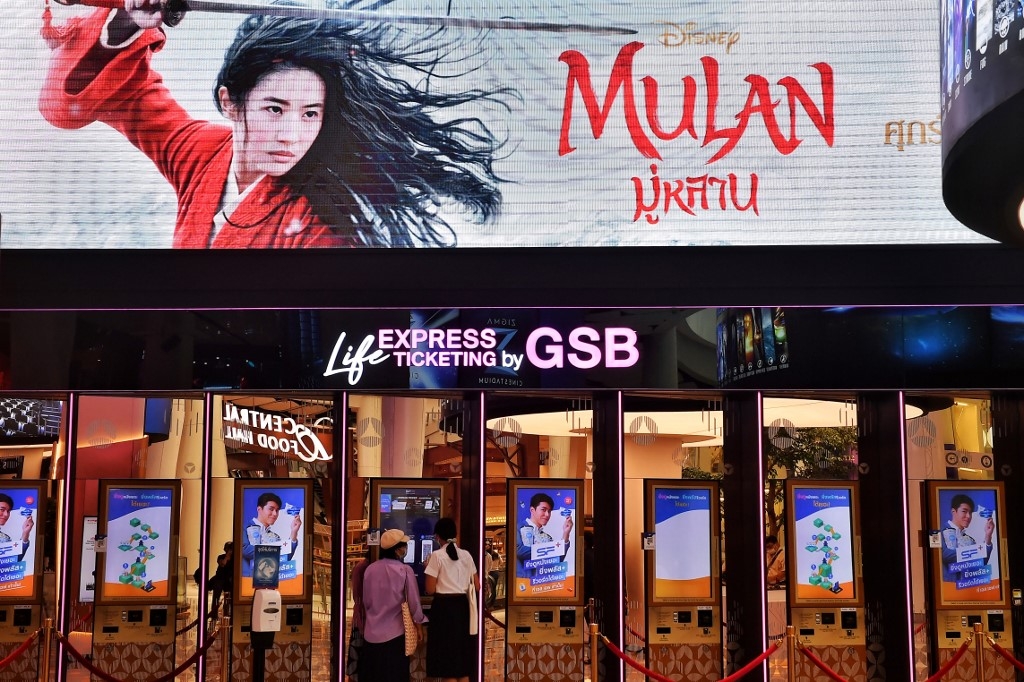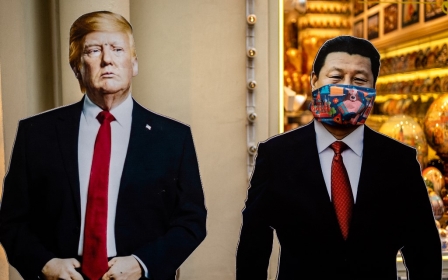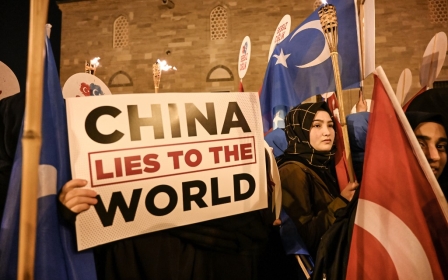Disney's Mulan faces backlash with calls for boycott over filming in Xinjiang

The Walt Disney film Mulan is facing renewed calls for a boycott after authorities in China's western region of Xinjiang - where some one million Muslim Uighurs are reportedly being held in internment camps - were thanked in the film's closing credits.
After the movie was released last Friday on Disney's live streaming platform, observers noted the company offering a "special thanks" to eight government agencies in Xinjiang.
According to media reports before its release, Mulan was filmed in around 20 locations across China in 2018, including the Mingsha Shan desert, part of which is in Xinjiang, and the Tuyuk Valley, an oasis village east of Turpan.
Among the agencies applauded in the credits were the Chinese Communist party's "publicity department", which is in charge of propaganda in Xinjiang, as well as the public security bureau in Turpan - where several of China's so-called "re-education" camps have been documented.
China has faced heavy criticism over its treatment of its Turkic minority, with both Amnesty International and Human Rights Watch saying there are around one million Muslims held at the camps.
Beijing, after initially denying the existence of the camps, has described them as vocational schools aimed at dampening the allure of Islamist extremism and violence through education and job training.
But rights groups and foreign media have reported that official documents and satellite images show the facilities are equipped and run like prisons.
There have also been reports that the Chinese government has imposed sterilisation and birth control on Uighur women in order to curb the population. Imposing measures that are intended to limit births within a population is a part of the United Nations' definition of genocide.
'Potentially complicit'
Based on a 2,000-year-old Chinese legend, Mulan tells the story of a girl who disguises herself as a boy in order to join the Chinese Imperial Army to fight the invading Huns and save her father from going into battle.
The film was already facing boycott calls after the actress who plays the character of Mulan, Liu Yifei, expressed support for the Hong Kong police amid pro-democracy protests. Protesters accused police of using excessive force to quell demonstrations.
Joshua Wong, leader of Hong Kong's pro-democracy movement, said the latest revelation was another reason to boycott Mulan, writing that viewers could become "potentially complicit in the mass incarceration" of Muslim Uighurs.
Human rights experts have also called on Disney to be transparent about its dealings with authorities in Xinjiang.
"Disney should disclose the details about when #Mulan was filmed in Xinjiang, what assistances it received from authorities, what agreements it had made with them in order to do the filming, and what kind of human rights due diligence it conducted before making the decisions," Human Rights Watch China researcher Yaqiu Wang said on Twitter.
Disney had shared its script with Chinese authorities and consulted with local advisers and taken input from China's film board, all in order to guarantee a release in China, according to the Wall Street Journal.
This article is available in French on Middle East Eye French edition.
Middle East Eye delivers independent and unrivalled coverage and analysis of the Middle East, North Africa and beyond. To learn more about republishing this content and the associated fees, please fill out this form. More about MEE can be found here.





